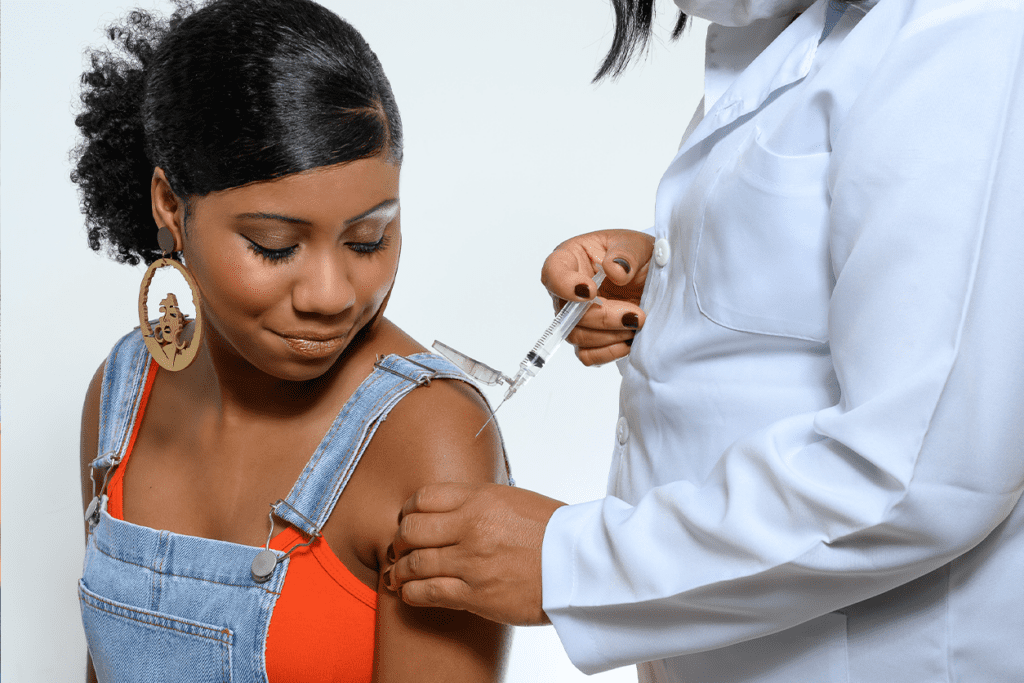
The HPV vaccine supports teens on their sexual health journey, protecting them from HPV-related cancers.
Adolescence is the time of life when the body undergoes an amazing transformation as it matures from childhood to adulthood. During this period, our reproductive systems develop under the influence of sex hormones, which can cause a rapid increase in exploration of sex. We must support teenagers during this phase to ensure they have a safe and healthy approach towards their sexual health. And one important component of that support is educating them about the Human Papilloma Virus (HPV) vaccine.
Infections with HPV are extremely common: the Centers for Disease Control & Prevention (CDC) reports that nearly everyone will be infected with HPV at some point in their lives. Around 42 million Americans are infected with it, and each year as many as 13 million additional Americans become infected with it. A large number of those new infections happen in people having sex for the first time and that affects many teenagers. While many will go on to clear the infection, some will harbor infection for long periods.
Some of these infections result from high risk strains that can increase risk for cancers. These include cervical cancer, anal cancers, penile cancers, and cancers affecting the upper airway. Each year as many as 36,000 Americans are diagnosed with one of these HPV-related cancers.
Cervical cancer and HPV
By far, cervical cancer remains best studied for its association with HPV infection. The virus causes as many as 9 in 10 cases of cervical cancer. HPV infection produces precancerous changes that can be easily detected on a pap smear and when unchecked, can progress to cervical cancer. About 200,000 women get diagnosed with cervical pre-cancer each year and 11,100 are diagnosed with cervical cancer leading to 4,000 deaths. Also, despite the emphasis on cervical cancer, HPV also affects men. Around 40 percent of cancers caused by HPV occur in men, amounting to 15,000 cancers diagnosed each year.
Power of HPV vaccine
Fortunately, we have had effective vaccination against HPV for many years. The CDC recommends that children should receive their first dose at around ages 11-12 (though they can be started as early as age 9), with a second dose due in 6-12 months after the first dose. If you wait until age 15 or more to get your first dose, then you will need three vaccine doses over a period of 6 months. Starting early is important because you want to build immunity before a teenager gets exposed to HPV through sex.
The effectiveness of the HPV vaccine is truly astounding. Since its introduction in 2006, HPV infections and cervical cancer rates have dropped considerably. Infections with HPV strains that can cause most cancers are down 88 percent among teenage girls and 81 percent in young women.
To conclude, we must continue to build upon the success of the HPV vaccine rollout. We can do this by maintaining high vaccination levels and achieving full vaccination rates earlier in teens. Primary.Health empowers schools, communities, public health organizations, and other large groups to provide affordable and accessible testing and vaccinations through a range of community clinic solutions.
Disclaimer: This blog content and linked materials are not intended as individual medical advice, diagnosis or treatment, and should not be considered as such. Any readers with medical concerns should contact a licensed healthcare provider. This blog is provided for informational purposes only.
